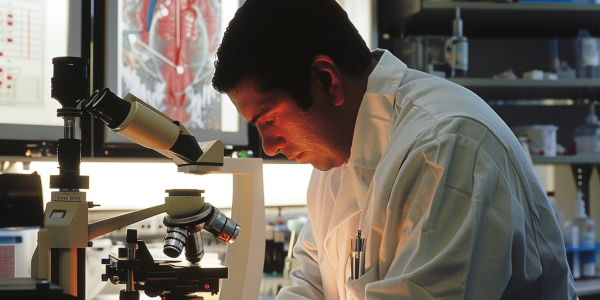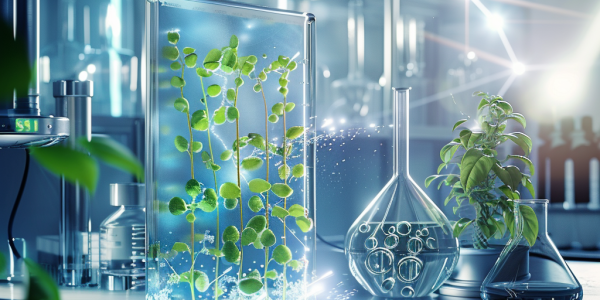Study Reveals Health Risks of Fire Retardants in Household Products
A recent study reveals alarming health risks associated with polybrominated diphenyl ethers (PBDEs), commonly found in household items like couches and car seats. These fire retardants may disrupt hormones and lead to developmental issues in children. Research suggests that probiotics, particularly Limosilactobacillus reuteri, may help mitigate these effects. As awareness grows, consumers are encouraged to prioritize non-toxic products and consider dietary changes to improve health and safety.
Breakthrough Study Reveals ‘Latent Pores’ in Macrocyclic Molecular Crystals for Enhanced Separation Techniques
A groundbreaking study from Hiroshima University reveals the potential of ‘latent pores’ in macrocyclic molecular crystals for selective molecule trapping. This innovation could revolutionize separation techniques in industries like pharmaceuticals, environmental science, and recycling, leading to more efficient and sustainable practices.
Revolutionary Non-Addictive Painkiller Targets Chronic Pain Areas
Researchers have developed a groundbreaking non-addictive painkiller that targets chronic pain areas directly, marking a significant advancement in pain management. This innovative prodrug remains inactive until it reaches sites of chronic discomfort, offering a more effective treatment by addressing the root causes of pain. As preparations for human trials begin, this targeted approach promises to transform chronic pain therapy, providing hope for millions suffering from this condition.
UCLA Study Reveals Cancer Risks from Fire Smoke Chemicals
A groundbreaking study from UCLA reveals the cancer risks associated with polycyclic aromatic hydrocarbons (PAHs) found in fire smoke. Led by firefighter Derek Urwin, the research indicates that certain lesser-known PAHs may pose a greater cancer risk than the known carcinogen benzo[a]pyrene. Utilizing advanced simulations, the study highlights the need for improved safety measures for firefighters and others exposed to these hazardous chemicals.
Rising Concerns Over Endocrine-Disrupting Chemicals and Public Health
Endocrine-disrupting chemicals (EDCs) pose significant risks to public health, affecting hormonal systems and leading to various health issues. Commonly found in everyday products like plastics and cleaning supplies, EDCs such as BPA and phthalates can disrupt metabolic and reproductive functions. Experts recommend proactive measures to limit exposure, including choosing safer products and eco-friendly cleaning supplies. As research evolves, understanding and addressing the dangers of EDCs is crucial for protecting health and well-being.
Asteroid Ryugu’s Water Reveals Insights into Early Earth and Life’s Origins
Recent studies of the ancient asteroid Ryugu, conducted by the Hayabusa2 mission, reveal crucial insights into the role of water in its evolution and its potential impact on early Earth. The findings highlight how freeze-thaw cycles shaped Ryugu’s surface and internal structure, suggesting that asteroids like Ryugu may have contributed organic materials essential for life on our planet.
Health Risks of Flame Retardants in Black Plastics Uncovered
Recent research reveals alarming health risks linked to flame retardants in black plastics, commonly found in kitchen tools and children’s toys. The study, published in Chemosphere, highlights the dangers of hazardous chemicals like decabromodiphenyl ether (decaBDE), banned by the EPA in 2021, yet still present in consumer products. Experts warn against using black plastic for food-related items, stressing the need for awareness about recycled materials and their potential health impacts.
Study Links PFAS Exposure to Sleep Disruptions in Young Adults
A recent study from the Keck School of Medicine at USC reveals a significant link between PFAS exposure and sleep disturbances in young adults aged 19 to 24. Highlighting the adverse effects of these ‘forever chemicals’ on sleep quality, the research underscores the urgent need for public health policies to address the health risks associated with PFAS. The findings emphasize the importance of understanding environmental factors affecting sleep and overall health.
Study Reveals Toxic Flame Retardants in Common Black Plastic Household Items
Recent research published in Chemosphere reveals alarming levels of toxic flame retardants in common black plastic household items, including food-contact materials. The study highlights serious health risks associated with these chemicals, linked to cancer and endocrine disruption. With flame retardants detected in sushi trays and kitchen utensils, the findings emphasize the urgent need for safer alternatives and stricter regulations on plastic products. Consumers are urged to stay informed and advocate for healthier choices in their everyday purchases.
University of Michigan Develops Innovative Artificial Photosynthesis System for Sustainable Ethylene Production
Researchers at the University of Michigan have developed a groundbreaking artificial photosynthesis system that efficiently converts carbon dioxide into ethylene, a key hydrocarbon used in plastics. This innovative approach significantly reduces CO2 emissions compared to traditional methods, paving the way for sustainable fuel alternatives and addressing climate change. The system’s efficiency is five to six times greater than conventional solar energy methods, representing a major leap in sustainable energy solutions.










